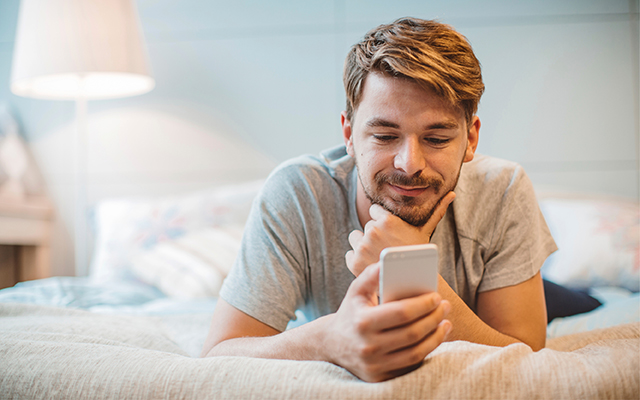The first generation to grow up with Facebook and YouTube may be waking up to one of social media’s nastier side effects: a poor night’s sleep.
A new study out of the University of Pittsburgh suggests that frequent users of the 11 most popular social-media channels experience more sleep disturbance than those who log on less often. The findings should encourage physicians to discuss social-media usage when treating young adults with sleep issues.
“This is one of the first pieces of evidence that social-media use really can impact your sleep,” lead author Jessica Levenson, PhD, says in a statement released by the university. And it’s the first study of its kind to focus specifically on Millennials (for this study, ages 19 through 32), many of whom have used social media for most of their lives.
Levenson, a postdoctoral researcher in the university’s psychiatry department, and her team surveyed the social-media patterns and sleep quality of nearly 1,800 young adults. They found that the study participants spent an average of an hour a day on one or more of the major social-media platforms and checked their various accounts 30 times a week. Nearly 30 percent of them suffered “high levels” of sleep disturbance.
Levenson’s research pointed to three specific ways social-media use can contribute to sleep issues:
- Late-night engagement on social-media channels can simply displace sleep time.
- Interaction with other users on these platforms can trigger emotional, cognitive, or physiological reactions that can make falling asleep more difficult.
- The light emitted by computer screens can disrupt circadian rhythms and disturb sleep patterns.
The participants who reported checking their feeds more frequently were about three times more likely to experience poor sleep than those who logged on less often.
In addition, the frequency of visits appeared to affect participants’ sleep patterns more profoundly than total time spent on the channels. Those who spent the most total time on social media were only twice as likely to toss and turn as those who logged the least time on the channels.
“This may indicate that frequency of social-media visits is a better predictor of sleep difficulty than overall time spent on social media,” Levenson says. “If this is the case, then interventions that counter obsessive ‘checking’ behavior may be most effective.”
The study, however, does not conclusively prove causation, says senior author Brian Primack, MD, PhD, assistant vice chancellor for research on health and society in the University of Pittsburgh’s Schools of the Health Sciences. Levenson’s findings do suggest that certain patterns of social-media use can lead to poor-quality sleep, but the results do not eliminate the possibility that participants are turning to social media when they have difficulty sleeping.
“It also may be that both of these hypotheses are true,” Primack explains. “Difficulty sleeping may lead to increased use of social media, which may in turn lead to more problems sleeping. This cycle may be particularly problematic with social media because many forms involve interactive screen time that is stimulating and rewarding and, therefore, potentially detrimental to sleep.”
Chronic sleep disturbances can exact a toll on your health, as we note in “The Healing Power of Sleep” from our March 2013 issue. So try to avoid late-night patterns that impinge on your shuteye with these tips from integrative and functional-medicine practitioner Frank Lipman, MD.

This Post Has 0 Comments